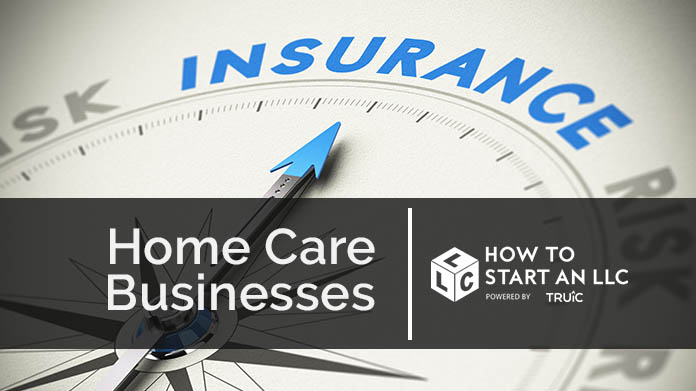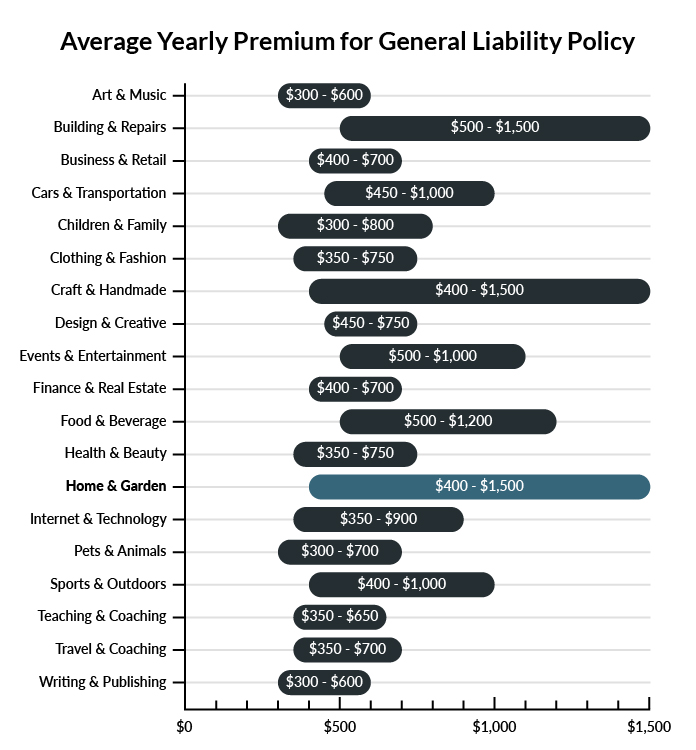Home Care Business Insurance
Getting home care business insurance is essential.
Home care businesses need to be protected against personal injury, property damage, and breach of contract claims.
For example, one of your employees could accidentally injure someone in their care, which might result in a lawsuit.
We’ll help you find the most personalized and affordable home health care business coverage for your unique business.

Recommended: Ergo Next Insurance is dedicated to matching small businesses with the right policy at the best price.
Best Insurance for a Home Care Business
General liability insurance is — generally speaking — one of the most important insurance policies for home care businesses.
Some of the risks general liability insurance covers are:
- Bodily injury
- Property damage
- Medical payments
- Legal defense and judgment
- Personal and advertising injury
Several additional policies are often used by home care businesses in addition to general liability, such as:
- Commercial property insurance: Your home care business’s company property, such as computers and printers, is covered by this type of policy.
- Commercial auto insurance: A commercial auto insurance policy is needed if you have a company vehicle, which many home care businesses do in order to get to their clients’ homes. Any accidents you or your employees get into on the job won’t be covered by your standard auto insurance.
- Workers’ compensation insurance: If one of your employees gets sick or injured due to work they’re performing on the job, this type of insurance will cover their medical bills and related expenses.
Let’s Find the Coverage You Need
The best insurers design exactly the coverage you need at the most affordable price.
Cost of General Liability Insurance
The average home care business in America spends between $400-$1,500 per year for $1 million in general liability coverage.
Compare the average cost of general liability insurance for a home care business to other professional industries using the graph below.
Several factors will determine the price of your policy. These include your:
- Location
- Deductible
- Number of employees
- Per-occurrence limit
- General aggregate limit
You may be able to acquire general liability insurance at a discounted rate by purchasing it as part of a business owner’s policy (BOP) rather than as a standalone policy.
A BOP is a more comprehensive solution that includes multiple forms of coverage, such as business interruption and property insurance.

Find the Best Rate
Discover the best coverage at the lowest rate in our affordable business insurance review.
Common Situations That General Liability Insurance May Cover for a Home Care Business
Example 1: While simultaneously cooking dinner and attending to a client’s personal needs, an employee forgets about a pan on the stove. A grease fire eventually erupts, and it quickly spreads to other parts of the house. General liability insurance would likely cover the property damage and any related legal costs.
Example 2: A caregiver leaves their bag at the top of the stairs, and a client trips over it while trying to go downstairs. The client sustains multiple injuries that require medical attention. General liability insurance would likely cover the client’s injuries.
Example 3: An advertising campaign claims that your home care business is the “best” in the region, but this claim isn’t backed by any empirical data. A competitor files a defamation lawsuit. Regardless of the outcome of the suit, general liability insurance would typically cover corresponding legal costs.
Other Types of Coverage Home Care Businesses Need
While general liability is the most important type of insurance to have, there are several other forms of coverage you should be aware of. Below are some of the most common types of coverage:
Commercial Auto Insurance
Your business needs to insure any vehicles that it uses to drive to and from clients’ sites. Commercial auto insurance is required, as personal auto policies aren’t designed to protect against the increased risk that comes with work-related driving.
Commercial auto insurance can be acquired as part of a package policy or by itself.
Professional Liability Insurance
Professional liability insurance is used to protect skilled workers from potential liability lawsuits that might be filed if they make a mistake while working. The insurance usually covers legal fees, settlements, and judgements associated with error-related lawsuits.
While providing in-home care is often routine, a mistake can potentially have devastating consequences. For example, a dropped patient may suffer severe injuries.
Professional liability insurance can be obtained in many package policies as well as in a standalone policy.
Home-Based Business Insurance
If you manage the logistics of your home care business from a home office, getting home-based business insurance is appropriate. Business activities conducted at home are not normally covered by standard homeowner’s insurance policies, but they are usually are covered by this insurance.
Home-based business insurance might be included in a business owner’s policy (BOP) or procured through a standalone policy.
Workers’ Compensation Insurance
If your business employs home care providers, plan on getting workers’ compensation insurance. The coverage protects workers in the event that they’re injured on the job, which can happen easily when employees are lifting and otherwise assisting patients. Additionally, state law generally requires employers to carry the coverage.
Additional Steps To Protect Your Business
Although it’s easy (and essential) to invest in business insurance, it shouldn’t be your only defense.
Here are several things a home health care professional can do to better protect their business:
- Use legally robust contracts and other business documents. (We offer free templates for some of the most common legal forms.)
- Set up an LLC or corporation to protect your personal assets. (Visit our step-by-step guides to learn how to form an LLC or corporation in your state.)
- Stay up to date with business licensing.
- Maintain your corporate veil.
Home Care Business Insurance FAQ
Yes, absolutely. You will need to first get a quote from an online business insurance provider like Ergo Next Insurance. Ergo Next allows you to then purchase a policy immediately and your coverage will be active within 48 hours.
A typical business owner’s policy includes general liability, business interruption, and commercial property insurance. However, BOPs are often customizable, so your agent may recommend adding professional liability, commercial auto, or other types of coverage to your package depending on your company’s needs.
“Business insurance” is a generic term used to describe many different types of coverage a business may need. General liability insurance, on the other hand, is a specific type of coverage that business owners need to protect their assets.
Your home care business will need business insurance before it gets started.
The home care business carries a lot of risks. Therefore, even if it is not legally obligated to carry certain specific policies (e.g., commercial auto insurance), your business will need insurance for financial security.
Not necessarily. Certain exceptions may be written directly into your home care business insurance policy, and some perils may be entirely uninsurable.
Yes, an LLC is meant to create a legal barrier between your business and your personal assets and credit. If you haven’t formed an LLC yet, use our Form an LLC guide to get started.
An LLC doesn’t protect your business assets from lawsuits and liability– that’s where business insurance comes in. Business insurance helps protect your business from liability and risk.